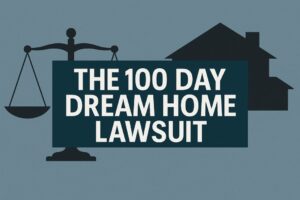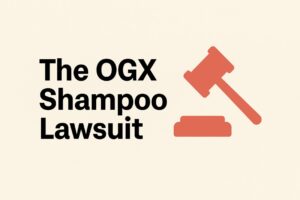The Homeaglow lawsuit has grabbed attention in California and across the country. Many workers now speak out about how the company treated them. They claim Homeaglow used them but gave nothing in return. Some say they worked long hours without fair pay. Others say they received no help after injuries. Almost all say they felt ignored and undervalued.
This case does more than target one company. It highlights a growing problem in gig work. More people now depend on apps and platforms to find jobs. These platforms avoid hiring workers as employees. That means no health insurance, no sick days, and no retirement plans. It also means less legal protection.
Cleaners say they had little control. They followed company rules. They depended on Homeaglow for income. Yet the company called them “independent.” Workers believe this setup was unfair and illegal.
This lawsuit challenges how companies treat freelance labor. It pushes courts to look closely at the rights of workers in the gig economy. What happens here could shape the future for many workers across different industries.
What Is Homeaglow?
Homeaglow runs an online platform. It connects homeowners with local cleaners. People book services on the website. They pick cleaners based on reviews. Customers pay through the platform after booking.
Homeaglow does not hire cleaners as employees. Instead, it labels them as independent contractors. That means no health benefits, paid time off, or legal job protections.
This setup cuts costs for the company. But many workers say it causes serious problems.
What Workers Claim in the Lawsuit
The case is Hovis vs. Homeaglow, Inc. It was filed on April 8, 2023, in the Southern District of California. Two cleaners, Marie Hovis and Genaro Mendoza, lead the case. Other cleaners support their claims.
Here are the key points.
1. Wrong Worker Classification
Cleaners say Homeaglow mislabels them. They act like employees but receive no benefits. They follow company rules. They rely on Homeaglow for jobs. They have little freedom in how they work.
California labor laws may consider them employees. If the court agrees, Homeaglow may face major changes.
2. Unpaid Wages and No Overtime
Many cleaners report missing pay. Some say they worked long shifts with no extra pay. Others paid for their own supplies but received no refund.
The Fair Labor Standards Act and California wage laws require fair pay. Workers say Homeaglow broke these rules.
3. Unfair Labor Practices
Cleaners claim harsh treatment. Some lost breaks. Others faced threats or criticism after speaking up. A few were removed from the app without warning.
These actions violate worker protection laws. The law protects people from punishment after reporting unfair treatment.
4. Broken Promises
Some cleaners say Homeaglow promised fair pay and steady work. Later, those promises disappeared. Clients also report poor service and canceled bookings.
When a company fails to meet its word, it may face contract claims. Courts can order companies to pay for losses.
5. False Claims to Customers
Customers say Homeaglow used misleading ads. Some felt tricked about the quality or cost of services. Others did not get what the company promised.
These actions fall under consumer protection laws. The court may order refunds or business changes.
6. Data Privacy Fails
Cleaners and clients worry about personal data. Some say Homeaglow mishandled private details. Others fear leaks or misuse.
California’s Consumer Privacy Act sets rules on personal data. Companies must protect private information.
Arbitration Makes Legal Action Harder
Cleaners agreed to an arbitration clause during sign-up. This rule stops them from suing in court. Instead, disputes go through private channels.
Homeaglow used this rule to block an earlier case. Now, it tries the same move again. Arbitration gives companies an edge. Workers say it shuts down their voice.
Unsafe Work Conditions
Cleaning home sound simple but the job comes with real danger. Cleaner use strong chemicals to remove stains, kill germs, and meet client demand. These product can cause skin rashe breathing issues or eye damage. Some cleaner report headaches or dizziness after long shift.
They also lift heavy furniture climb ladder and work on slippery floor. Fall pulled muscle and back injuries are common. In many cases, workers enter homes without knowing the layout or safety risks. They often work alone, without support, in unfamiliar places.
Many say Homeaglow offered no safety guidance. They received no training. They bought their own cleaning supplies. Some even paid medical bills after job-related injuries. A few kept working hurt because they could not afford to stop.
Workers claim the company showed no concern. They want safety rules, better support, and basic protection. This lawsuit forces a closer look at how Homeaglow protects—or fails to protect—the people who keep its business running.
How This Lawsuit Affects Homeaglow
If the court rules for the cleaners, Homeaglow may need to reclassify workers. It may face higher costs. It may need to offer benefits and pay back wages.
This shift could change how gig platforms operate. Other companies may face similar legal risks.
How to File a Case Against Homeaglow
Cleaners or customers can take action. Here’s a step-by-step guide:
Choose Your Legal Claim
Pick your main issue. It could be unpaid wages, unfair treatment, or false promises.Gather Evidence
Keep all emails, receipts, text logs, and pay records. These prove your case.Contact Homeaglow First
Reach out to customer support. Ask for a fix. Many cases resolve early.Hire a Lawyer
Look for an expert in labor or contract law. A good attorney knows your rights.File the Case
Your lawyer will prepare the paperwork. If needed, file a complaint with state or federal labor agencies.
After filing, both sides must share records. They must attend hearings. They may settle the case or go to trial. If they settle, the court will approve the final terms.
Why This Lawsuit Matters
The Homeaglow case highlights a major problem. Gig workers lack job security. They get no benefits. They take all the risk. The companies take the reward.
California law protects workers, but tech companies stretch those limits. This lawsuit could bring change. A win for cleaners may lead to stronger rights across the gig industry.
Rideshare drivers, delivery workers, and freelancers face similar issues. This case could set a legal standard.
Final Thoughts
The Homeaglow lawsuit tells a bigger story. It’s not just about cleaning homes. It’s about fairness and respect at work.
More companies now rely on flexible labor. But many treat workers as disposable. Courts may soon decide if that approach crosses legal lines.
Homeaglow may need to rethink how it operates. Other companies will watch closely. Workers want better pay, clear rules, and real protection. This case could shape the future of work.




